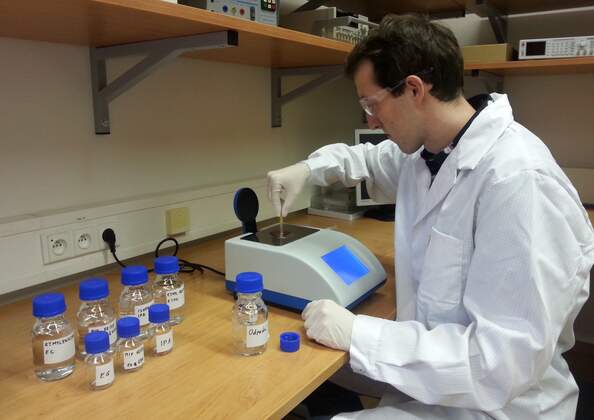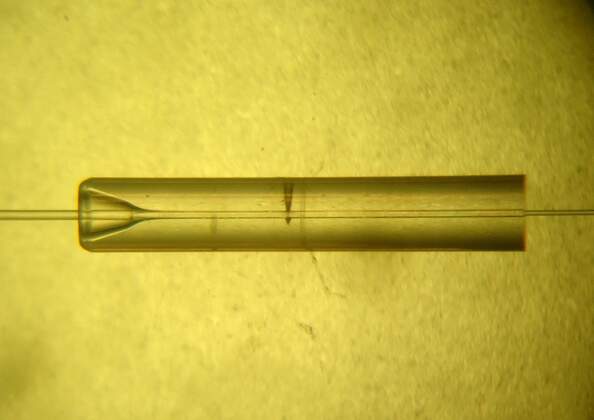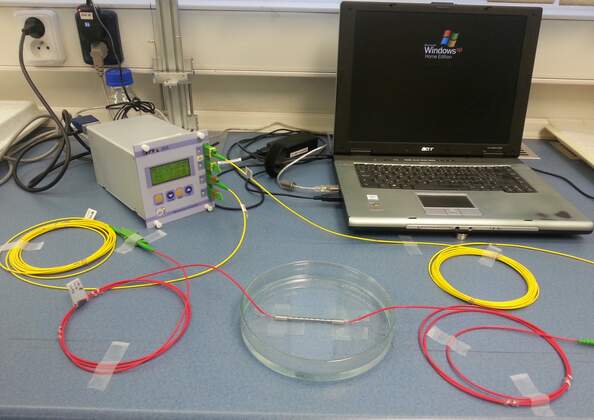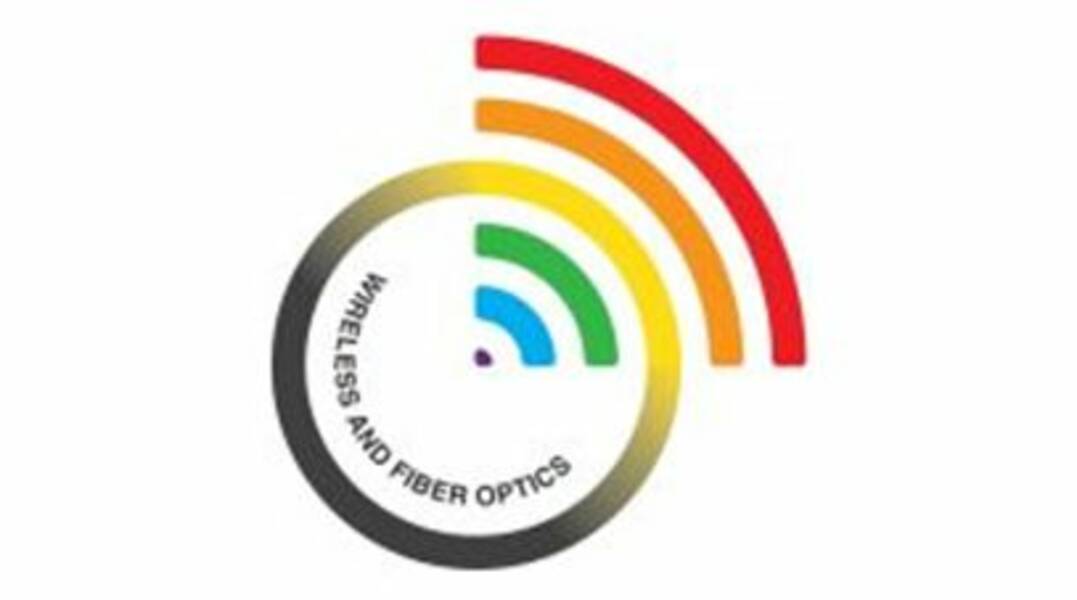The most successful representatives are fibre Bragg grating (FBG) sensors, which monitor buildings, bridges and other constructions for possible cracks. Also, also fibre-optic gyroscopes (FOG), which are the most precise gyroscopes used especially for aerial and space inertial navigation.
In our team, we focus on three kinds of FOS: i) We investigate refractometric sensors for detection of liquid quality, either by refractive index or by spectroscopic analysis. We developed fibre tapers with enhanced evanescent-wave overlap, designed and prepared photonic crystal fibres for sensing and also experimented with chalcogenide multimode sensors for MIR spectroscopy; ii) We are involved in the research of precise displacement measurement using Fabry-Perot interferometers (FPI). Furthermore, we now focus on FPI in combination with hollow-core fibres (see the section above); iii) Last but not least we have been involved in FOG development, both in hardware and software.
Our background includes experience with fibre-optic sensor design, spectroscopy, fibre-optic gyroscopes, fibre tapering and extremely precise interferometers. Furthermore, we have a brand new glass fusion station, the top-shelf Fujikura/AFL LZM-100 giving us countless possibilities of research extensions and sensor preparation.





